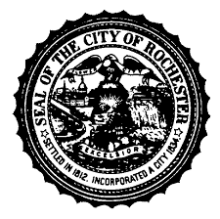Collaborating to Light Up Opportunities in New York
"We have fiber in the ground that is currently dark...It's a resource we have that other communities want," said Rochester, New York, Mayor Lovely Warren at a November press conference. The city is now working with Monroe County to take advantage of that dark fiber.
There are more than 360 miles of fiber under the ground serving public safety entities, suburban police and fire departments, libraries, schools, and public works facilities. In downtown Rochester, there is enough fiber to provide the redundancy that high tech companies need to establish operations. Over the past two decades, there have been several public works projects involving excavation. During those projects, crews installed fiber.
There are approximately 211,000 people living in Rochester, the county seat of Monroe County. The county is situated along the northwest border of the state, along Lake Ontario; about 750,000 people live there.
City and county officials estimate that more than 70 percent of the fiber network capacity is not being used. Local leaders are taking steps to change that. In November, the two entities released a joint request for proposals (RFP) seeking an expert to assess the current network and make recommendations on how to make the most of their investment.
At the press conference to announce the collaboration, Warren said:
The Rochester community is fortunate to have a substantial fiber optic network already in place. Very few cities have the advantage of this infrastructure in their city center. We need to be sure that its capacity is being used wisely and, ultimately, that this capacity is being used to help employers create more jobs. This fiber network gives Rochester a competitive advantage when it comes to attracting companies with high bandwidth needs and the jobs they bring with them.
According to Monroe County Executive Maggie Brooks and Warren, the city and county are hoping to work with private partners. At the press conference, they suggested leasing out capacity but they acknowledged that this is only the first step in a long process.



